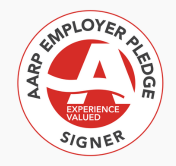The supply of accountants and bookkeepers is slowing to a trickle as the talent pipeline narrows on both sides… from those entering the profession to those exiting. At the tail of the pipeline, baby boomers are starting to retire in droves with 75% of CPAs eligible to retire now. On the entry side, fewer students are pursuing accounting degrees shunning long hours in the public accounting profession, onerous continuing education requirements, and preferring alternative quantitative career paths such as data analytics and consulting. The number of U.S. students who completed accounting degrees has fallen by almost 9% over this past decade and is expected to continue to decline.
The impact of this talent shortage on businesses, especially small businesses, is acute. Small businesses are losing on two fronts. If they conduct their hiring internally, they face difficulty competing against large companies that can often offer higher salaries, better benefits, and more robust training programs. If small businesses outsource accounting services, they are increasingly at risk of being dropped, deprioritized, or gouged by accounting firms who are also struggling to find talent and are managing their workloads based on ROI – and that usually means the small businesses get squeezed.
Desperate, small business managers may resort to plugging the accounting gap by letting large backlogs of accounting transactions build, cutting corners in sound accounting practices, or tackling the day-to-day bookkeeping themselves pulling their focus away from growing the business. They may even resort to farther-flung options like outsourcing transactions overseas.
In our work with small businesses, we’ve been part of developing creative, practical, and sustainable approaches to addressing the accounting talent shortage. Below are four strategies our clients are effectively using.
Develop Your Own Transactional Bookkeepers
You don’t need an accounting degree to be a good transactional bookkeeper. An aptitude for numbers, coupled with some professional or on-the-job training in an accounting system such as QuickBooks and accounting basics (A/R, A/P, invoicing, bank reconciliations), can prepare a professional without an accounting degree to do most of the day-to-day transactional work. To help our clients fill transactional bookkeeping positions, we launched a 12-week, asynchronous Accounting for Small Business Certification course in partnership with Merrimack College and Noodle. So far, three cohorts have graduated and are working or are available to start supporting small businesses. Other online programs are also available through Intuit, EdX, LinkedIn, etc., as well as in-person courses at small business centers and community economic development organizations.
Success Story: Our client, a health tech start-up, was looking for an executive assistant to the founders who could work remotely supporting scheduling, bookkeeping, and HR as well as special projects. They hired and have had great success with Rosalind, a candidate of ours who had 20+ years of professional experience in publishing, legal, and nonprofit environments, a BA in History from Harvard, and who had recently graduated from our Accounting for Small Business program with basic bookkeeping and QuickBooks skills.
Widen Your Recruiting Funnel
The funnel for accounting talent gets narrow quickly if a business is rigid around credentials such as an active CPA, experience in a specific accounting system, or hands-on industry experience. We’ve seen clients turn away stellar candidates who have QuickBooks Desktop, but not QuickBooks Online experience. Or clients who require an active CPA, even though there are many more professionals available who have inactive credentials, including those who may have taken a career break, pivoted away from accounting for a while, or simply worked for a company or industry that didn’t require the CPA certification. While rigid certification, systems, or industry experience may be non-negotiable for some positions, for most internal small business accounting positions, these credentials are nice to have. They can be addressed effectively through hands-on and/or self-directed training.
Success Story: The CEO of a leading security service franchise turned to us to help find a part-time controller to strengthen the company’s financial processes and infrastructure and manage day-to-day accounting. Initial requirements for the job included an active CPA. We encouraged the company to consider a candidate, Michelle, who did not have a CPA but had a BS in accounting and 20+ years of experience working in accounting with small and medium-sized businesses. She turned out to be the best candidate for the job and was highly valued by the CEO and the company.
Attract Accountants with Flexibility
As larger businesses start to demand that employees return to the office, small businesses that can offer flexibility will be better equipped to compete for and win accounting talent. Post-covid surveys estimate that 90%+ of employees still prefer remote or hybrid arrangements and many are willing to change positions or take lower pay in exchange. In addition, allowing remote work significantly expands the talent pool by allowing for a larger geographic search area. Companies should be prepared with a secure, cloud-based accounting environment such as QuickBooks Online or QuickBooks Desktop installed on a cloud provider (we use ACE Hosting) to enable remote work.
Success Story: A life sciences manufacturing client was struggling to find a full-time controller to report to its new CFO. We encouraged the client to offer a hybrid schedule and were able to find Barbara, a candidate with 20+ years of experience leading finance and accounting in several global manufacturing companies. Looking for a more flexible position so she could help her aging mother with doctor’s appointments, she decided to leave her full-time on-site controller position to take our client’s hybrid position.
Don’t Forget Sidelined Talent
There are a significant number of amazingly qualified bookkeeping and accounting professionals sidelined from the workforce. Sidelined professionals may include those who have caregiving responsibilities for children or aging parents, those who are scaling back as they start entering retirement, and individuals who have retired but now wish to re-enter. Most in this untapped talent pool are looking for either part-time work or full-time remote work with flexible hours. Routine accounting or bookkeeping positions can be attractive to these candidates, as opportunities for them to continue to apply and grow their hard accounting skills and as a meaningful way to stay engaged in the workforce.
Success Story: Lisa, a return-to-work job seeker turned to us to find a part-time bookkeeping position. She had over a decade of experience in accounting and administration but had taken a 3-year break to care for young children. We placed her in a part-time, 10 – 15 hours per week remote accounting associate position at a technology consulting firm and within 3 months she was converted to a full-time remote employee.
As the baby boomer generation retires and high-tech work options broaden for quantitative-minded professionals, finding qualified bookkeepers and accountants will continue to be a challenge for businesses of all sizes, but especially small businesses. Improve your odds of hiring great talent to fill your accounting needs by widening your recruiting funnel, providing a flexible work environment, and considering training non-accounting professionals for your transactional bookkeeping requirements.









